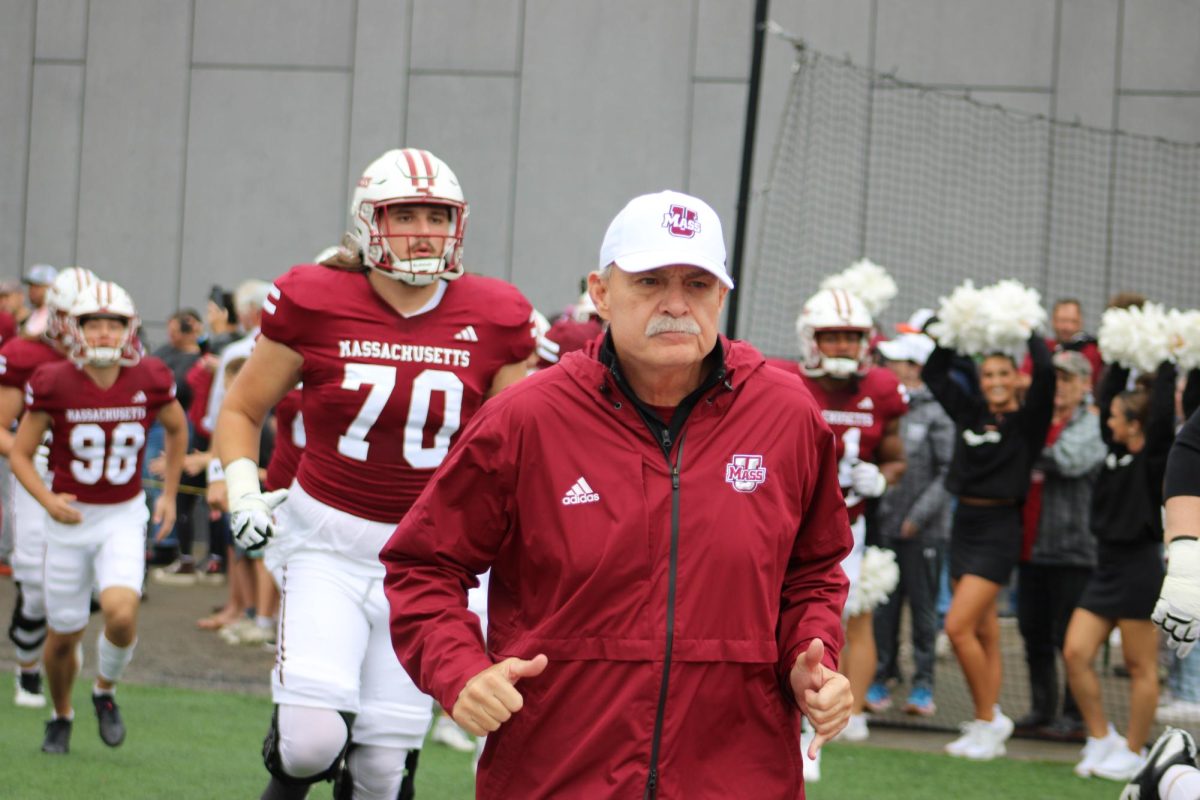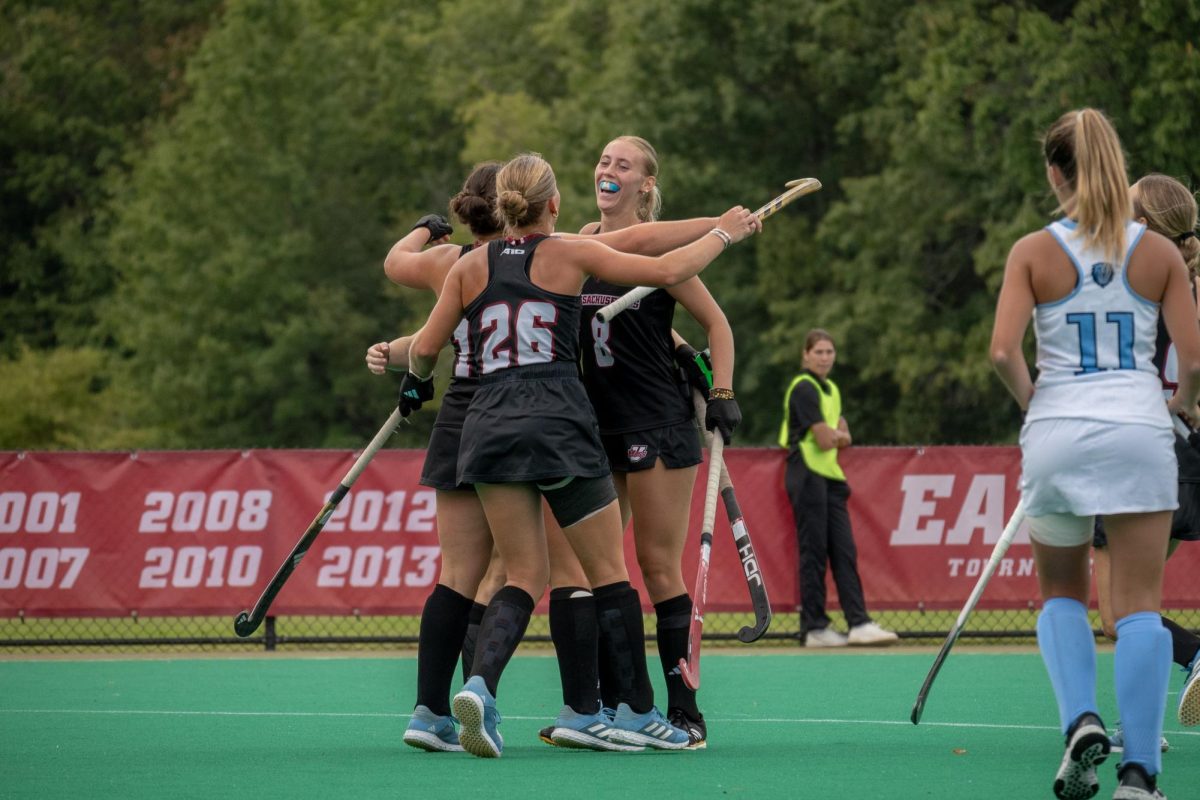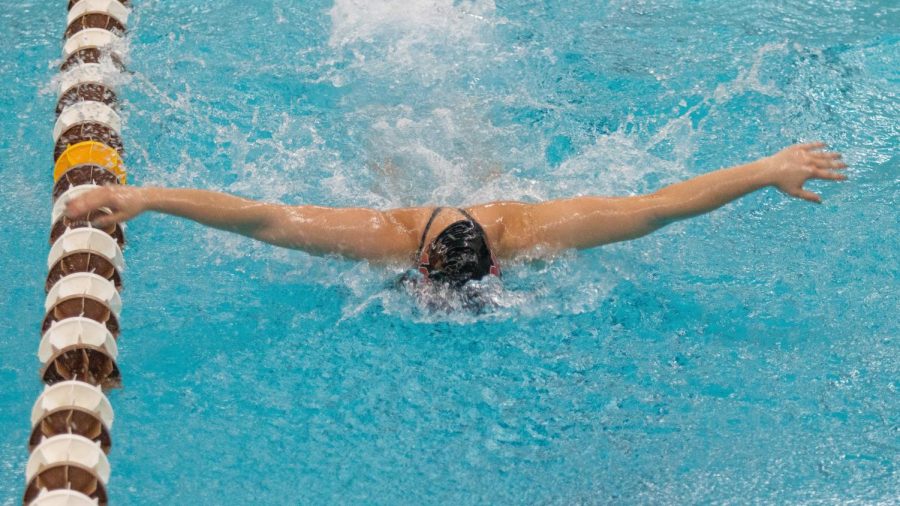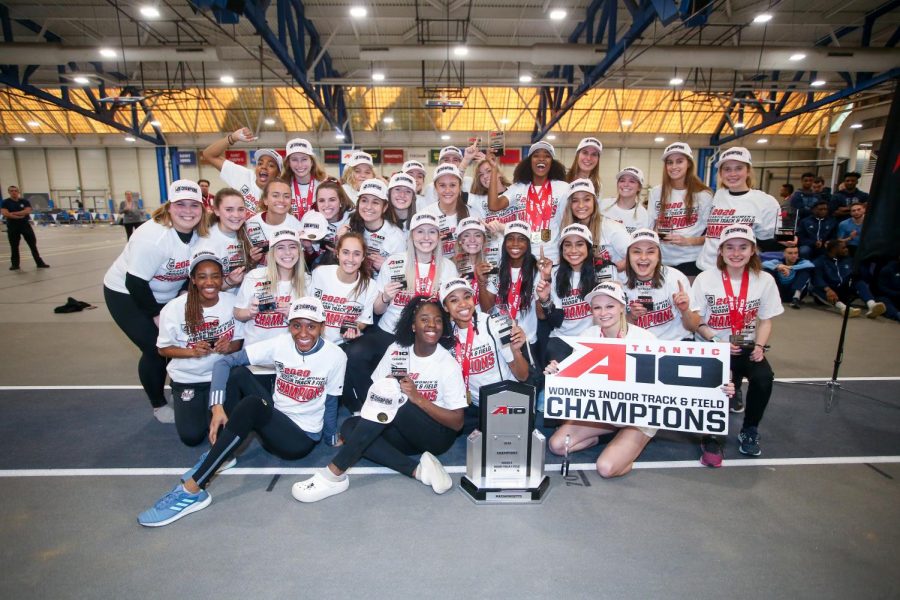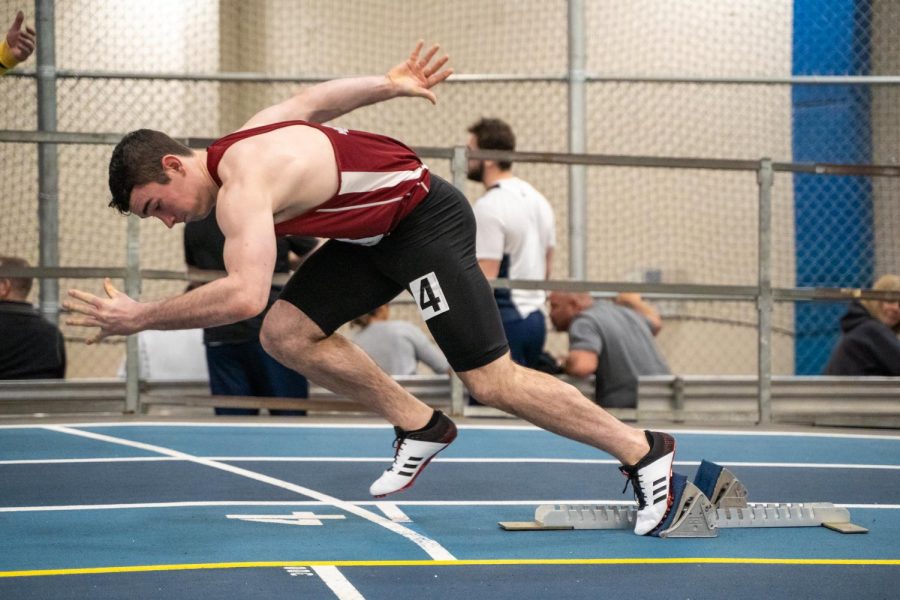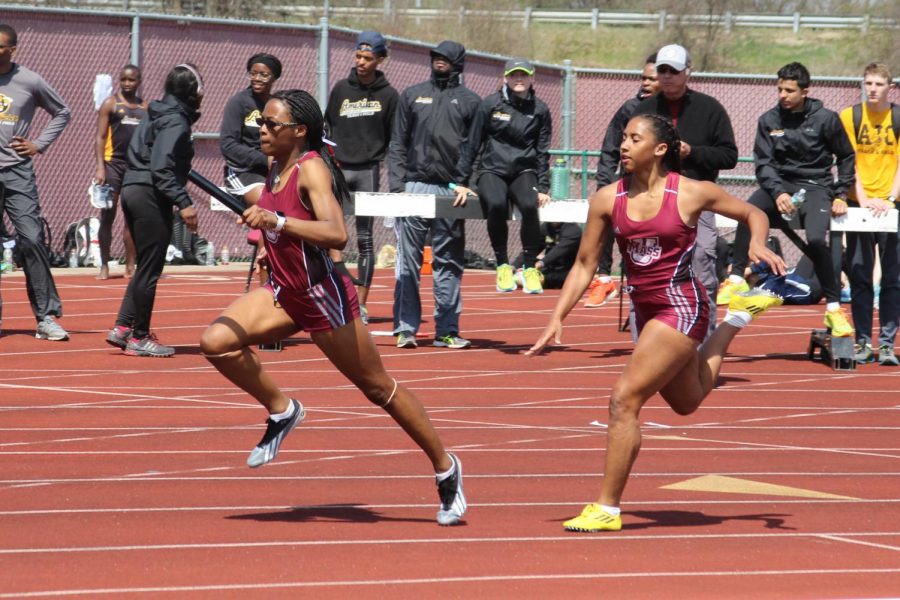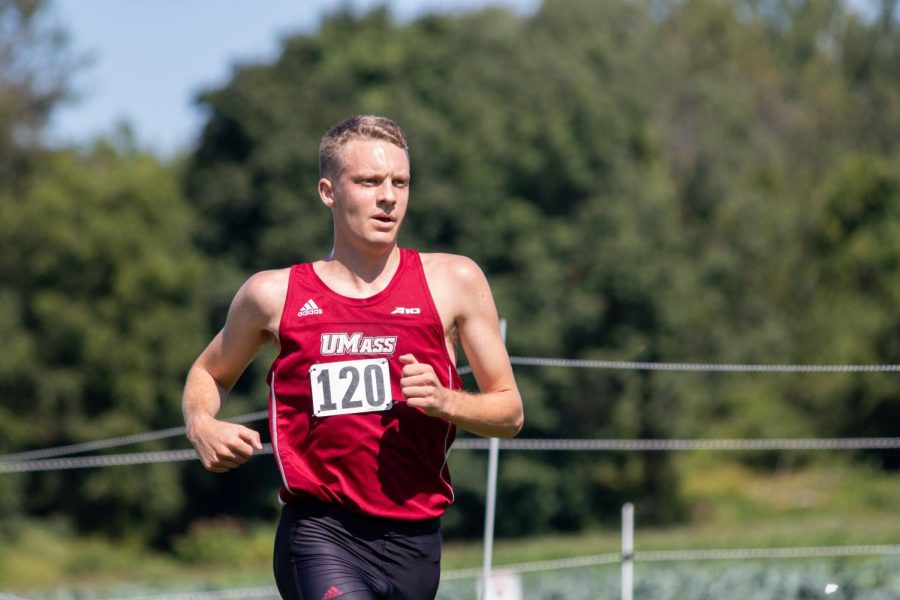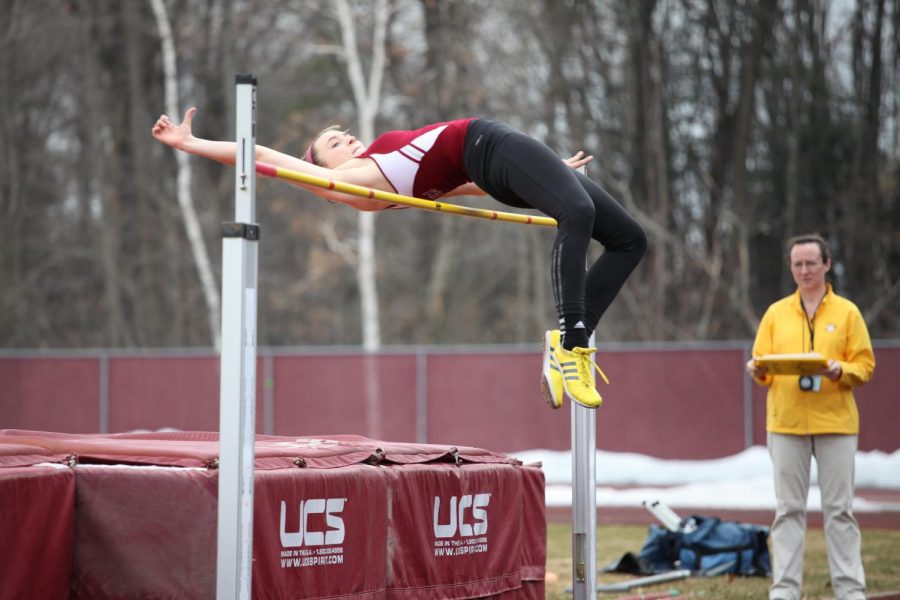
Senior Massachusetts track and field distance runner Rachel Hilliard is currently the second fastest 3,000 meter runner in the history of the University, but she doesn’t race to come in second.
Her best time of 9:37 only trails the school record of 9:35 by two seconds and her best mile is only three seconds away from the school record as well. She’ll be running both of these events this coming weekend at the Atlantic 10 Conference championship meet, which will be the last Atlantic 10 meet of her indoor career.
These next few weeks hold the last few chances she has to break a record that is so close, and nothing would mean more to her.
“I really want this record more than anything, and I really hope that I can break it,” Hilliard admitted.
As difficult as it may be to imagine, she only started running the 3,000 during her junior indoor track season. Despite her inexperience with the event, she posted one of the top five times in school history on her first try.
“After that race, coach Julie (LaFreniere) told me that I was going to be running this race a lot more, and I said that I didn’t really want to,” Hilliard said with a chuckle.
While she didn’t seem to like it at first, LaFreniere recognized the talent she had for the event and began to nudge her toward it.
“She loves the mile, and she is a miler at heart, but I believe she is better in the (3,000)”, LaFreniere said.
Now, with Hilliard on the verge of setting a record in both races, it seems as though it was the right decision for Hilliard to continue with the 3,000.
“I fully expect her to break the record by season’s end”, LaFreniere said with a calm sense of confidence.
Early Struggles
While Hilliard is motivated to perform on the track, her desire to excel in areas off it may have gotten in the way at times during her first two years on campus.
“It was a difficult transition for me to get used to the new lifestyle, new coach, and learning time management skills,” she said. “I was able to stay consistent with my times but I wasn’t really improving”.
In high school, Hilliard’s best mile time was 5:08, and she found it difficult to move past it. After a frustrating performance in the Atlantic 10 Championships sophomore year, the situation culminated.
“Before the race I was so nervous and too focused on this one race that by the time it started I sort of worried all the energy out of me that I had, and my legs felt heavy and I just didn’t run a good time,” Hilliard said.
She broke down after the race was finished and cried out of disappointment and frustration. At the time, she couldn’t understand why, and LaFreniere felt she needed to tell her what she needed to hear.
“I had to tell her, ‘Rachel, you do too much,’” LaFreniere said. “She was carrying 24 credits that semester and she was a (Teaching Assistant) her sophomore year”.
Hilliard acted as a TA for some of the seniors on the team. The biology major has maintained a 3.99 GPA through three and a half years of college and is a peer mentor in Commonwealth Honors College.
She often strained herself with high levels of stress early in her career as a student-athlete and admitted that it took its toll on her.
“My first couple of years here I didn’t really value sleep that much, now I realize how important it is and aim for seven to eight hours every night,” she said.
The Transition
When she returned for her junior year, she finally started to see the results she had been searching for.
“She just blossomed as a runner, she was much stronger than before and she was like a whole new person”, LaFreniere said.
Hilliard attributed her changes largely to her trip in the summer to Honduras. She spent a month hiking through rainforests populated with poisonous snakes and eating mainly rice, beans and plantains. Two weeks into the trip she severely sprained her ankle, and couldn’t train for the weeks that followed.
“The time away from running actually made me fall in love with the sport again, and it made me realize that I’m doing this because it’s fun and not because I have to do it”, Hilliard said.
She said she stopped viewing meets with fear and realized it’s a fun part of track. Mentally, she relaxed before each race and it allowed her to perform at the level she had been pushing herself toward
Yet a freak injury to her Achilles tendon just two weeks before the Atlantic 10 Championships hindered her performance.
Hilliard ran in the race, but couldn’t train the week leading up to the meet and cut out the backs of her shoes so she wouldn’t put pressure on the tendon running. In the month following, she was relegated to cross-training in a swimming pool.
That’s when Hilliard found out just how far she could push herself.
Nearing the finish
Now nearing the end of her college career, Hilliard sees records that have stood for over 15 years within reach – even if it meant taking alternative routes to get there.
UMass has no home indoor facility and often trains at Smith College’s indoor track with high school teams. If runners choose to go outside, they must contend with frigid winter temperatures.
“It’s hard to be a Division I program striving for elite status and not have our own indoor facilities,” Hilliard said. “But it makes us tough, other programs have their nice facilities and cushy locker rooms and we’re made stronger through the elements.”
Now, she’s zeroing in on two UMass records.
Kelly Liljeblad owns the school’s 3,000 meter record at 9:35:67 and is second all-time in the mile, trailing only Rebecca Donaghue (4:50:07). Hilliard sits just behind them and has little time left to overtake them.
But there’s also life beyond the track.
She plans to attend veterinary school after graduation in one of several programs she has been accepted to, which include the University of Pennsylvania and Ohio State. It’s the little things she says she’ll miss the most.
Being part of the team has meant so much to her, and not having that next year will be another adjustment in her life that she will have to run through.
Nick Souza can be reached at [email protected].











